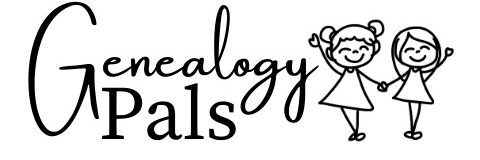The more time I spend doing genealogy, the more I wonder who else is studying genealogy. Then I can’t help but wonder why others study genealogy. So who studies genealogy – and why are we doing it?
People who study genealogy (called genealogists) come from all ages, backgrounds, and areas. While genealogists used to be comprised of older individuals, technological advances have made genealogy attractive to all ages. People study genealogy to understand their backgrounds, families, histories, stories, medical concerns, and more.
Ready to know more about who studies genealogy (and why)? Keep reading – and let’s go through it together.

Genealogists Are Who Study Genealogy and Family History
Fun fact: anyone who looks into their family heritage is a genealogist. Yes, anyone.
Simply by reading this article about who studies genealogy implies you’ve got an interest in family history. That makes you a genealogist, too!
Historically and stereotypically, genealogists used to be older, retired, and elderly folks who needed a hobby. There’s a reason for this stereotyping – okay, several reasons. The first is that most people who attend genealogy classes are older adults. Breanne is often the youngest person in her genealogy class – by at least 20 years.
(If you want to be a better-informed genealogist, you may want to get a more in-depth education. You may even want to attend genealogy classes as Breanne does. If that’s the case, you’ll want to read our article on what kind of education you’ll need as a genealogist.)
The second reason is that genealogy can be a time-consuming hobby – both because it does take time, but mostly because it’s addicting. Seriously – you start looking up a few things and suddenly it’s been several hours. If you haven’t experienced it yet, give it time – you’ll get there.
However, in recent years the demographic has been changing. Genealogy has officially entered the digital era, opening it up to everyone. And with the addition of higher levels of tech (especially DNA-related studies and testing), younger people are getting involved.
Based on conversations I’ve had with the older adults who have been doing genealogy for decades, they’re thrilled at the new influx of interest! They’re also thrilled to have help with the new, tech-heavy side of things.
People who are interested in genealogy today are all over the board as far as age, interest, and everything else. And the level of interest is far beyond what it used to be! Talk about exciting!
Breanne was on Family Search recently and noticed that her biker/truck driver uncle had been working on their family tree. Yup. Her truck-driving, motorcycle-riding uncle is also a genealogist.
So, yes. Anyone can be a genealogist. And anyone can like doing genealogy. To read more about who likes genealogy, read our post on it here (COMING SOON).
Other people who commonly study genealogy include:
- People curious about their families
- Members of the Church of Jesus Christ
- Adoptees looking for bio families
- People who want to know more about their ethnic/cultural heritage
- Individuals who wonder about the national pride that comes with their heritage (Breanne’s grandma loves to talk about her Scottish heritage)
- People who want to feel a kinship to their past
- Individuals curious about the country (or countries) their ancestors hailed from
- Gaining a deeper appreciation for the area or country where you currently live
- And many more!
Who Studies Genealogy (And Why They Do)
Let’s make things a little easier – let’s make a table and see who studies genealogy – and why they do it. We’ll talk more about the why (reasons people study genealogy) more in-depth later on in this article.
| Person Who Studies Genealogy | Why They Study Genealogy |
|---|---|
| Individuals | Everyone has their own reason to study genealogy; common reasons are to understand their history or to know where their family is from. |
| Court Records and Vital Statistics | Individuals getting married will need to have at least a basic understanding of their genealogy for filling out vital records like birth certificates and marriage records. For marriage records, you may also need to certify that your spouse-to-be isn’t directly related to you (which will require some genealogy!). |
| Historical Courts | Titles, lands, and crowns were passed down from one generation to the next. Royalty traces its lines back centuries or longer. Historical genealogists kept track of these family lines. |
| Historical Inheritance | Even if a family weren’t royal, historical (and some current) inheritance laws go from one generation to the next. Family succession is tied to generations and genealogy. |
| Current Inheritance Laws | Current inheritance laws (and wills) also rely on family lines (to varying degrees). Lawyers occasionally rely on genealogy to help in cases, especially inheritance-based law. |
| Forensic Genealogists and Criminal Investigators | Criminal investigators and forensic genealogists study family lines and DNA in order to help solve crimes. |
| Individuals Interested in Joining Lineage Societies | Most lineage societies (such as the Daughters of the Amerian Revolution, the Daughters of Utah Pioneers, and the Jamestowne Society) require genealogical documentation to prove that you are a descendant of the target group. |
| Families Impacted by Adoption | Families impacted by adoption often search for their birth or blood families – so that they can understand where they came from, their medical histories, or the reasons that things happened the way they did. |
Seriously. Any and everyone can study genealogy. Now let’s talk more about why people should study genealogy.
Why Study Genealogy?
People study genealogy for countless reasons. Some study genealogy to know more about themselves, their families, and their histories, and to help their families be healthier and better connected. Individuals also study genealogy to understand where they fit in the bigger picture of life – by looking at how countless stories and life experiences through the ages added up to get them to where they are now.
There’s also an invisible drive or feeling we each get at various times – a drive to feel more connected with our families. This drive is often referred to by Christians as the Spirit of Elijah. To my less or non-religious friends, they just call it an unnamed and invisible drive to understand their own histories and families – so that they can better understand themselves.
Some families study genealogy to help create a family narrative of resilience and ability. A 2013 New York Times article details how telling your family’s story (through genealogy) can help with building a family narrative. This family narrative can either focus on:
- How your family overcomes any and all trials thrown your way;
- How your family has had difficulties and trials that have caused failure;
- Or how your family experiences both success and failure – but always manages to keep going by sticking together.
The first two options are commonly used narratives, but the last option is the key to helping family members develop resilience and a healthy emotional health base. That way, we know we aren’t alone as we struggle, sometimes fail, and keep going towards success. The New York Times has a great article on this, listed in the resources at the end of this page.
Others study genealogy because it’s fun. It’s like playing detective and searching for clues. Then, as you solve the mystery or find the missing piece of information, it’s an incredible feeling.
I think the real question isn’t why you should study genealogy – but why you shouldn’t study genealogy. And the answer is this: everyone should study genealogy – the benefits are just that amazing.
The (Brief) Who’s Who of Genealogy
When you’re wondering who studies genealogy, you may also come across these names. These are people who have studied or impacted genealogy in a meaningful way. As you continue to study genealogy, you’re sure to see these names (and their significant contributions) in various mediums online.
| Name | Genealogical Contribution |
|---|---|
| Lisa Louise Cooke | Lisa is a genealogist and the owner and operator of Genealogy Gems – including a genealogy-based podcast. |
| Dick Eastman | Dick is the international president of Every Home for Christ – part of a global evangelism ministry that has an emphasis on understanding your family. |
| Elizabeth Showne Mills | Elizabeth is a genealogist who pioneered better research methodology classes and courses. She has been instrumental in teaching improved genealogy research methods. |
| Diahan Southard | Diahan is a genealogist specializing in DNA and genetics. She speaks and writes about genetic genealogy at YourDNAGuide.com. |
| D. Joshua Taylor | Joshua is a genealogist and host of Genealogy Roadshow (PBS) and is a popular author and speaker. |
| Dear Myrtle | Dear Myrtle is a genealogy blog written by Pat Richley-Erickson, one of the top 5 international family history blogs. |
| Henry Louis Gates, Jr. | Henry is a four-season host of PBS’s Finding Your Roots. He is also a literary critic, teacher, historian, filmmaker, and public intellectual. |
| Kenyatta Berry | Kenyatta is a genealogist and lawyer. She has more than 15 years of experience in genealogical writing and research. She specializes in African American, Slave Ancestral Research, and DNA. She is also a host on Genealogy Roadshow. |
| Mary Tedesco | Mary is a genealogist, speaker, and author. She is a host on Genealogy Roadshow and the founder of Origins Italy. |
This is by no means a comprehensive or exhaustive list. These people are, however, those who have made a meaningful contribution to genealogy studies – simply by asking important questions like you’re doing.
Related Questions
Here are some other commonly-asked questions about who studies genealogy. Have a question that hasn’t been answered yet? Email us at [email protected] (or use our contact us page) to ask us directly. We’ll add it here on our website (either to an existing article or as a new post) as a reference for others who would also be interested in the answer.
Is Genealogy Science?
Genealogy is a social science that incorporates a wide variety of scientific and artistic skills like research, writing, math, history, genetic sciences, library sciences, social science, biological science, history, documentation, anthropology, and art.
What Degrees Are Required for Genealogists?
Being a genealogist doesn’t require a dedicated degree or certificate, although many professional genealogists do opt for board-level certification and/or a related degree. The exact level of education and certification will depend on the genealogist’s goals and career aspirations. For more information on degrees for genealogists, see our article on genealogy education here.
Resources
When learning about genealogy, it’s important to learn from various reputable sources. These are the sources used in this article and our research to be more informed as genealogists.
- Feiler, B. (2013, March 15). The Family Stories That Bind Us — This Life. The New York Times. https://www.nytimes.com/2013/03/17/fashion/the-family-stories-that-bind-us-this-life.html
